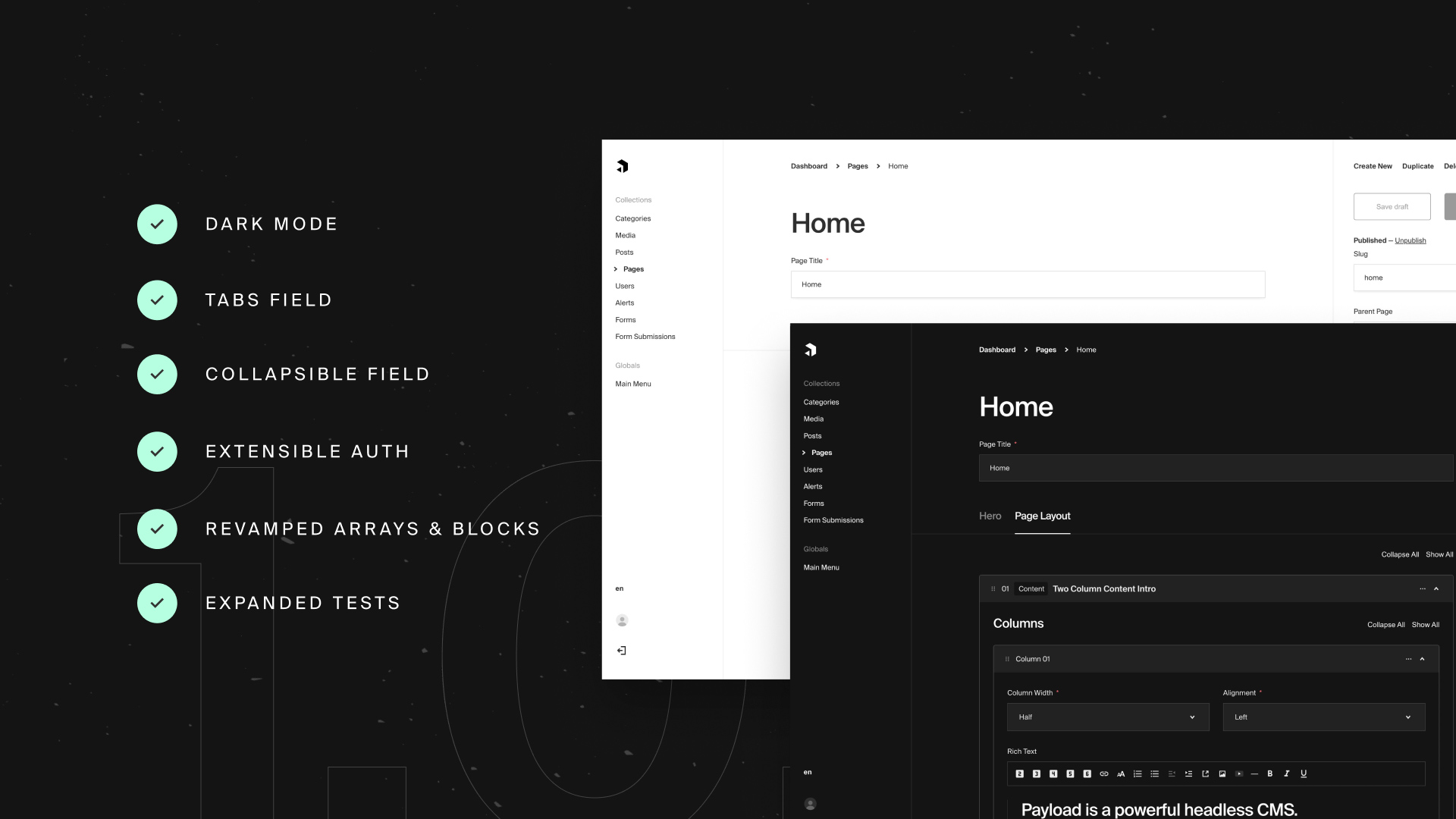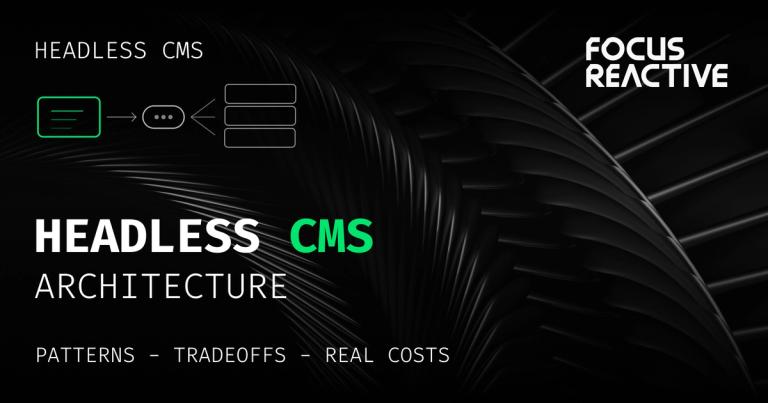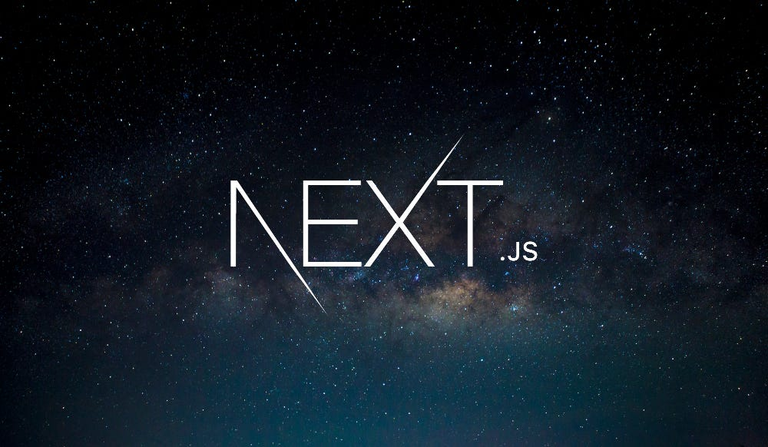The Best Self-Hosted Headless CMS
Self-hosted headless CMS provides unparalleled flexibility and control to marketing managers, business owners, and product owners seeking strong solutions. This post looks at the finest self-hosted headless CMS choices on the market, stressing their distinct advantages.

TL;DR
Self-hosting a CMS gives you full data ownership and infrastructure control. Payload, Strapi, and Directus are top choices for full self-hosting. Sanity is included as a hybrid alternative where you host the UI, but the data remains in the cloud.
What is a Self-Hosted Headless CMS?
A headless CMS is a content management system that separates the backend (where content is created and stored) from the frontend (where content is displayed). This "headless" approach makes it possible to publish the same content across different channels—websites, mobile apps —without being locked into one presentation layer.
In 2025, this model is more relevant than ever. Organizations are looking for flexible, scalable, and secure ways to handle their content, and running a CMS on their own infrastructure gives them full control over performance, security, and customization.
Check our other article if you need help choosing the right Headless CMS.
Market Outlook in 2025
The headless CMS market is growing fast:
- The global market is worth around $973.8 million in 2025, and forecasts suggest it could exceed $7 billion by 2035.
- Other studies expect growth to $4.59 billion by 2033, showing how widespread adoption has become across businesses of all sizes.
- Surveys show that 73% of organizations are either using or planning to use a headless CMS, and 44% already run one in production.
- AI is becoming a key part of the story: many platforms are adding tools for automated content generation, SEO optimization, and real-time personalization.
In short, self-hosted headless CMS platforms are not just a niche option anymore—they're becoming a standard part of modern digital strategies.
Why Choose a Self-Hosted Headless CMS?
- Full Control: You decide how and where your content is stored and delivered, which is vital for compliance and security.
- Customization: Extend or reshape the CMS to match your workflows, whether through plugins, APIs, or custom logic.
- Scalability: Handle traffic spikes and growing content libraries with infrastructure you manage and optimize.
- Security: Apply your own policies, patches, and monitoring to reduce risks.
- Data Ownership: Keep your content under your governance, with control over backups and storage.
- No Vendor Lock-In: Avoid being tied to a SaaS provider's roadmap or pricing model.
Popular Self-Hosted Headless CMS Options
Among the top contenders in the self-hosted headless CMS market are: Payload CMS, Strapi CMS, Directus and Sanity CMS (Self-hosted Studio only). Below is a comparative analysis of their features, based on user reviews and ratings from G2. This analysis will provide insights into each platform's strengths and weaknesses according to real user experiences.
Payload
![]() Payload
Payload
- Overview: Payload CMS is a modern headless CMS designed for developers. It focuses on flexibility and provides a great user experience for content creators.
- User Ratings: On G2, this developer-centric CMS has garnered positive reviews for its developer-friendly features and customization options.
- Pros:
- Customizable: Highly flexible schema design allows for personalized content models.
- User Interface: Users appreciate the intuitive and clean admin panel.
- API First: Powerful API capabilities enable easy integration with various front-end frameworks.
- Cons:
- Learning Curve: Some users mention a learning curve for those unfamiliar with coding.
- Documentation: While improving, some users find the documentation lacking in certain areas.
- Latest Version: v3.54.0 (August 2025)
- Recent Updates: New features like Trash Support, Job Scheduling, developer experience improvements, and a Vigilant Mode for tighter security.
- Security Note: Earlier versions (before v3.44.0) had vulnerabilities (CVE-2025-4643, CVE-2025-4644). Teams should upgrade to stay protected.
Strapi
![]() Strapi
Strapi
Overview: Strapi CMS is a popular open-source, self-hosted headless CMS known for its developer-centric approach and flexibility. It offers a rich content management experience and is highly customizable through plugins and APIs.
User Ratings: On platforms like G2, this open-source platform is often praised for its ease of use and flexible customization options, particularly suited for developers with varying levels of experience.
Pros:
- Customization: Easy to start with, strong plugin ecosystem.
- Ease of Use: Admin interface is intuitive, even for non-technical users.
- Supports both REST and GraphQL APIs.
Cons:
- Performance Issues: Can slow down with very large datasets
- Limited Support: premium support requires an enterprise plan.
New Features in 2025:
- AI-assisted schema generation
- Live Preview for content editors
- Customizable dashboards
- Free tier in Strapi Cloud for smaller teams
- Scheduling for Releases to plan content publishing ahead of time
Directus
![]() Directus
Directus
- Overview: Directus is an open-source platform that turns any SQL database into a headless CMS, making it highly adaptable for projects that rely on structured data.
- Highlights:
- User Ratings: This database-first platform has positive ratings on G2 for its powerful API, flexibility, and its ability to integrate with existing databases.
- Pros:
- Database Flexibility: Can integrate with any SQL-based database, providing more options for backend infrastructure.
- Customization: Highly customizable and suited for projects that require fine-tuning of content structures.
- Real-time API: Includes a real-time GraphQL API for content delivery.
- Cons:
- Setup Complexity: The initial setup can be challenging for less experienced developers.
- Limited Documentation: documentation is not always consistent.
Sanity
![]() Sanity
Sanity
- Overview: Sanity CMS is a composable content platform where you host the interface (Sanity Studio), while the backend and data (Content Lake) are managed by Sanity as a SaaS. It's known for its real-time collaboration and structured content model, which make it a favorite for developer teams.
- User Ratings: This composable platform has received high ratings on G2, especially for its collaborative features and developer experience.
- Pros:
- Excellent collaboration features. Users highlight the ability to collaborate in real-time, making it ideal for teams.
- Structured Content: Offers advanced content modeling with a focus on structured content.
- Rich Ecosystem: Integrates well with various tools and provides extensive plugins.
- Cons:
- Limited Self-Hosting: You can only host the Sanity Studio (the UI). The backend and database (Content Lake) are strictly SaaS, meaning you don't have full infrastructure control or data residency.
- Pricing: Some users feel that the pricing can become high for larger teams or projects.
- Setup may feel complex for non-technical users.
Comparative Overview (2025)
| Feature | Payload (v3.54) | Sanity CMS | Strapi (v5) | Directus |
|---|---|---|---|---|
| Ease of Use | Clean UI, developer-centric | Flexible, setup requires effort | Beginner-friendly, editor-oriented | Requires SQL knowledge |
| Customization | Highly flexible schema & API | Strong plugin ecosystem | Extensive plugin system | Database-driven customization |
| Cost | Free OSS, paid support options | Usage-based; scales with cost | Free OSS, enterprise plans | Free OSS, enterprise support |
| Community | Growing, active GitHub + Discord | Large global community | Very active open-source base | Smaller but technical |
| Scalability | High performance, API-first | Enterprise-ready, scales well | Scales with Strapi Cloud | Scales with SQL infrastructure |
User Experience and Insights
Payload
- User Reviews: Payload's features are ideal for technical teams that want high performance and modern APIs, but requires staying on top of updates.
- Example Review: "Payload's customizable nature allows us to adapt it to our unique needs, and the UI is straightforward for content editors."
Strapi
- User Reviews: Strapi's capabilities provide a good balance of accessibility and power, with 2025 bringing AI tools and a free cloud tier.
- Example Review: "Strapi's interface is clean, and the setup is straightforward even for beginners. I appreciate the flexibility of adding custom fields and the ease of integrating external services."
Directus
- User Reviews: Directus's approach is a good choice for SQL-heavy projects and enterprise data models.
- Example Review: "Directus has given us the ability to manage our complex database with ease. The real-time API is especially useful for building dynamic applications."
Sanity
- User Reviews: Sanity's collaboration features are the best choice when collaboration and structured content are priorities, but costs can climb as usage grows.
- Example Review: "Sanity's real-time collaboration has altered our productivity. The organized content strategy is also a game changer for handling massive datasets."
Conclusion
Each of the four CMS platforms: Payload, Sanity CMS, Strapi, and Directus – offers distinct advantages depending on the needs of the organization:
- Payload CMS is a great choice for developer-focused teams seeking high customizability and a straightforward UI, but it may present a learning curve for non-technical users.
- Strapi CMS offers a balance of flexibility and ease of use, making it an excellent choice for teams of varying technical expertise. Its support for both RESTful and GraphQL APIs adds to its flexibility, though performance can slow with large datasets.
- Directus stands out for its database flexibility, which allows easy integration with any SQL-based system. It's ideal for projects focused on managing structured content at scale, though it requires more technical expertise to set up and maintain.
- This hybrid option shines with its real-time collaboration features and flexible content modeling, making it ideal for teams that prioritize cooperation and handling structured content. However, its pricing can be a concern for larger teams.
It's important to note that it is not a fully self-hosted solution: while you host the Studio interface, the backend and data remain managed by Sanity.
Pros and Cons of Self-Hosted Headless CMS Solutions
Pros
- Full Control: You decide how your data is stored, managed, and secured, making it easier to stay compliant with regulations and apply your own security standards.
- Customization: A self-hosted setup can be customized to fit your exact business needs, from workflows to integrations, giving you freedom that SaaS tools often can't suggest.
- Performance: With the right infrastructure, you can fine-tune performance to your own requirements—faster load times, smoother scaling, and more predictable reliability.
- Cost Efficiency: While setup may require upfront investment, over time self-hosting can be more budget-friendly than recurring subscription fees, particularly for larger teams.
- No Vendor Lock-In: You're not stuck in a single provider's ecosystem, which means more flexibility to adopt new technologies and adapt as your stack evolves.
Cons
- Technical Expertise Required: Setting up and managing a self-hosted CMS requires technical knowledge, making it less accessible to non-technical users.
- Maintenance and Updates: You are responsible for regular maintenance, security updates, and backups. This gives you control, but also means extra time and responsibility for your team.
- Scalability Challenges: Scaling can be more complicated and may require more servers, resources, or infrastructure planning as your needs expand.
- Initial Setup Time: The setup procedure might be difficult, particularly if specific features are required.
- Limited Support: While many self-hosted solutions include communities and forums, official support may be less extensive than cloud-based services.
Conclusion
In today's fast-moving digital environment, self-hosted headless CMS platforms such as Payload CMS and Strapi CMS stand out as powerful options for teams that need more than just an out-of-the-box content tool. They offer flexibility, control, and the ability to shape workflows around specific business needs rather than the other way around.
Payload CMS Development

Choosing a self-hosted solution also means keeping ownership of your data, applying your own security policies, and scaling infrastructure on your terms. On the other side it requires more technical effort and ongoing maintenance, so organizations need to weigh control against complexity.
Finally, investing in a self-hosted headless CMS is a strategic decision that improves operational efficiency while also enabling firms to adapt quickly to market developments. Embracing these technologies can help firms realize the potential of their content strategy and achieve success in an increasingly competitive market.
We're a specialist headless CMS consulting agency helping teams transition to modern content platforms with clean architecture, scalability, and editorial control. If you're planning a replatform or building from scratch, contact our headless CMS consulting team — or schedule a headless CMS consultation with our team.










